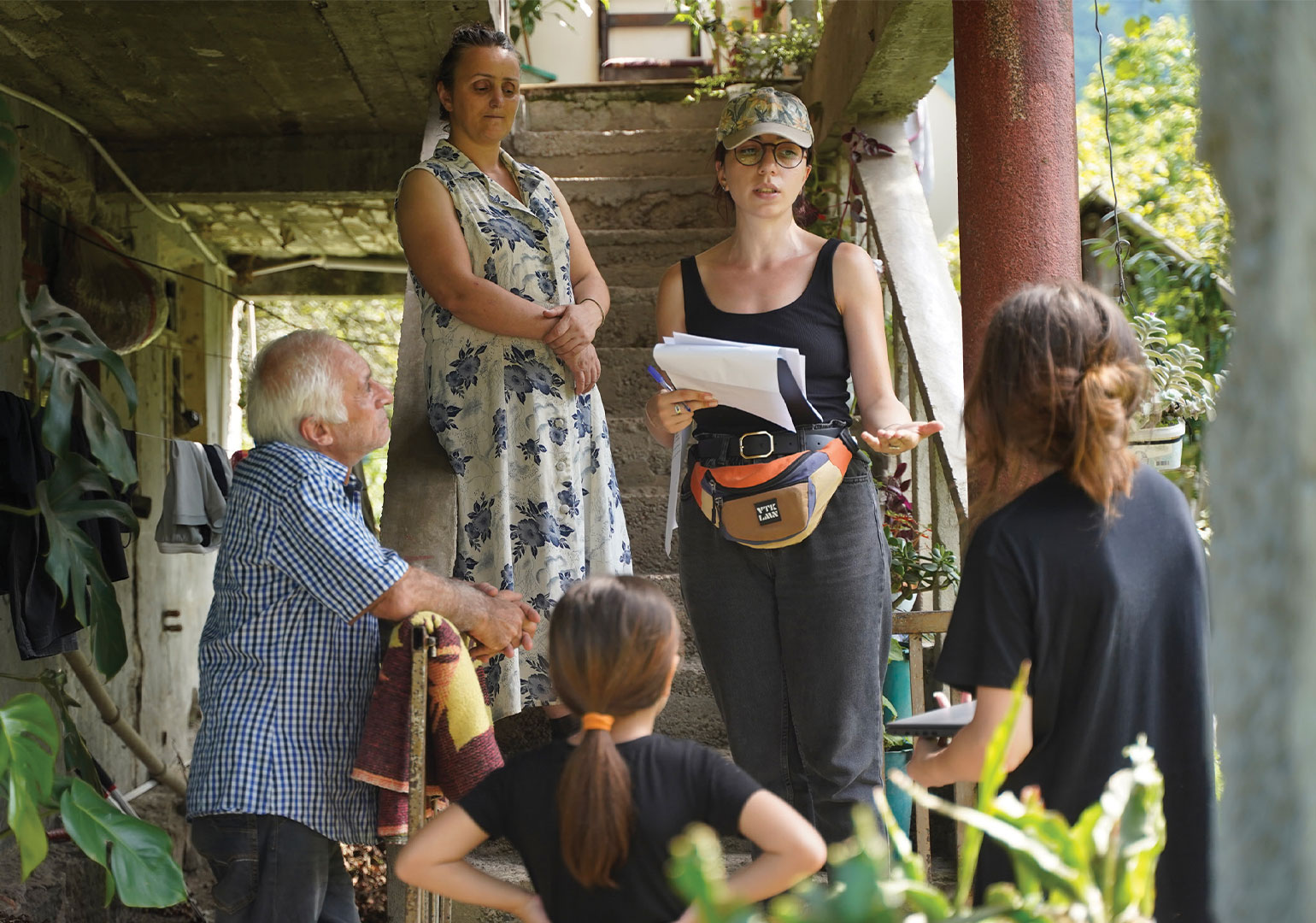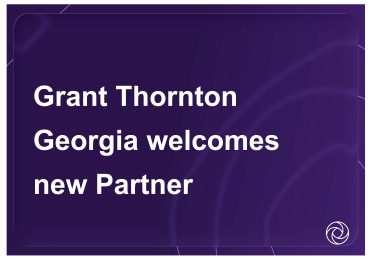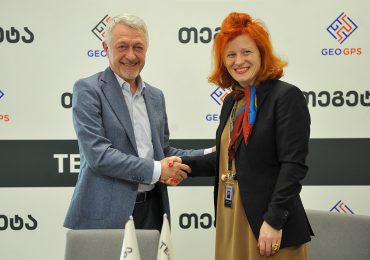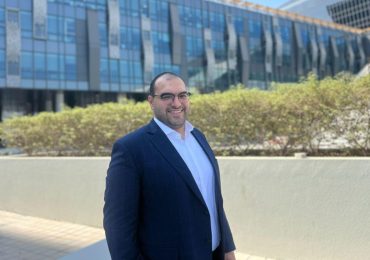The charity campaign Charte (“give internet”) was launched by informal education enthusiasts. It has attracted donations in excess of ₾2 million and helped increase access to digital education by connecting more than 2,500 socially vulnerable children to the internet.
Charte, a charity campaign focused on access to education, was launched in 2017. Since then, it has embarked on a challenging and longterm journey requiring immense effort, donors’ trust, and a steadfast commitment to the cause. Head of Charte Mariam Mchedlishvili shared details about the charity’s activities with Forbes Education, highlighting the team’s dedication.
The story of Charte starts with the establishment of the educational fund Educare Georgia. Young people united around the idea of developing high-quality educational resources and ensuring their accessibility decided to overcome the challenge with the help of the internet.
The primary purpose of founding Educare Georgia was to translate internationally recognized high-quality educational resources into Georgian. Examples of such resources are the platforms and teaching materials of the Khan Academy and Code. org. According to Mariam Mchedlishvili, the educational fund is actively lobbying Duolingo to create a Georgian-English course for the platform.
To promote the newly organized educational resources, Mariam Mchedlishvili and her colleagues took a proactive approach. They visited schools, introduced new opportunities to teachers and students, and engaged with school boards to advocate for incorporating these globally recognized educational resources into the curriculum as supplementary material. The translated Khan University courses provided students with free exam preparation and aimed to bridge the gap in the education sector, promoting equality.
While presenting the digitalized and translated online resources in schools, the Educare Georgia team discovered that a lack of access to the internet and personal computers was a significant challenge, particularly in provincial regions. The team concluded that this issue required a comprehensive approach rather than a simple provision of resources.

Mariam Mchedlishvili also highlighted the scale of the problem. According to a UNICEF report and a study conducted by Charte, up to 79,000 socially vulnerable schoolchildren in Georgia currently have no internet and computer technology access. These youngsters are effectively excluded from the learning process, which includes assignments that require access to digital resources.
Explaining Charte’s decision to focus on providing schoolchildren with personal computers and internet access, Mariam Mchedlishvili points out that the internet can no longer be viewed as a luxury item. “In our current environment, the internet has become a fundamental human right.”
The Charte team believes internet access is a source of numerous new opportunities. If a person’s prospects of success largely depended on their location and social status in the past, unrestricted access to the digital world removed those barriers and created a multitude of development opportunities.
Charte is the first and largest charity campaign in the Georgian education sector. The project relies entirely on donations. The idea was developed and improved over a long period of time. An upgraded and simplified web platform was later launched to facilitate donations.
As operations improved, the volume of donations and the number of pupils supported by Charte began to grow.
“At first, whenever a laptop was donated to us, we took it to a location near Tbilisi by bus,” Mariam Mchedlishvili recalls. According to her, the team initially struggled to identify target groups. The scale of operations was limited, as all activities were carried out on a voluntary basis. At the root of these issues was the lack of accurate official statistics showing the number of families and schoolchildren without access to the internet and computer technology in Georgia.
There have been other challenges for the project team since 2017. We spent part of the interview discussing the Coronavirus pandemic and its effects. According to Mariam Mchedlishvili, the scale of the problems associated with lack of access to the internet and computer technology became even more evident during the pandemic. At the same time, the number of project supporters and donors grew rapidly during this period. While up to 500 households benefitted from the project between 2017 and 2020, Charte and its donors helped another 500 families ten months after the pandemic’s start in February 2020.
“The pandemic made many people realize the scale of the problem regarding internet access and the importance of having an unrestricted connection to digital resources,” Mariam Mchedlishvili says, emphasizing how vital it was for pupils, especially those in higher grades, to be able to keep up with the curriculum.
Against the backdrop of these challenges, it is imperative for the Charte team to maintain stable support in the long term to ensure the uninterrupted procurement of computer equipment for new households and the financing of internet access for participating pupils. Charte can only maintain support through the trust of donors and backers.
“In these tough economic times, we feel a great responsibility when people trust us with their financial resources, regardless of how large or small that amount is.”
Georgia does not have a culture of educational philanthropy, which means that attracting support requires a lot of effort. Mariam Mchedlishvili and her project team have devoted substantial resources to ensuring Charte’s financial transparency and accountability to counter public skepticism towards charity campaigns.
“Each and every one of our financial and administrative decisions is transparent for the benefit of the donors,” the project leader says. The criteria for the selection of beneficiaries, monthly deposits and transfers, transactions, and decisions are presented in detail in Charte’s reports.

The trust Charte has gained can already be measured in figures. As of today, the campaign has raised more than ₾2 million through its platform. The donations have allowed the Charte team to purchase computers for over 2,500 pupils and finance internet access for each participating household.
According to Mariam Mchedlishvili, 5,098 individuals have donated to Charte since 2017, more than 2,000 of whom are regular contributors to the project. Regular donations allow Charte to pay the internet bills of thousands of schoolchildren monthly.
“People should understand that solving a big problem does not always require a herculean effort. One lari could be enough to improve a person’s life.”
Apart from accountability to donors, the Charte team also feels great responsibility towards their pupils. The team constantly monitors all beneficiaries to check how their lives have changed and whether their opportunities have improved.
Charte carries out an annual impact assessment as part of the care process. The results paint an optimistic picture and point towards a large-scale positive effect. 85% of beneficiaries say that their computer skills have improved, 40% actively use online resources for educational purposes, and 35% feel happier. The academic performance of participating pupils has also improved.
Mariam Mchedlishvili explains that with computer equipment, Charte provides pupils with an average of three years of internet access. Once Charte ceases to pay a family’s internet bills, the team carries out an additional study to determine how sustainable the results of its involvement are. The latest study showed that 98% of beneficiaries could pay internetrelated costs by themselves upon the expiry of the three-year period.
After discussing Charte’s positive impact and impressive results, we were curious to learn more about the project team. According to Mariam Mchedlishvili, Charte is run by a small team, and most of the work is done on a voluntary basis. The team’s core has stayed loyal to the project since 2017.
Along with Mariam Mchedlishvili, co-founders Giorgi Jibladze and Rusudan Jakeli have been actively working on the project’s development since the very beginning. The project management team includes Irma Gachechiladze, Nini Charkviani, and Razmik Badaliani. Maia Mchedlishvili and the company Helix, whose founder Tornike Gelashvili is also a co-founder of Charte, provide technical support for the project platform. Ana Bzhalava manages financial affairs. Freelancers Nia Gachechiladze and Tamuna Gelashvili help the team communicate with the pupils. The field team has also remained unchanged, with Irma Gachechiladze, Mariam Mchedlishvili, and Leri Gvilava visiting different regions almost every weekend for the past few years.
As the project grows, so does the volume of work. The team often needs help from freelancers and volunteers. Information about these people is available on the project’s website.
After seven years of hard work, the project has over 2,500 beneficiaries. Nevertheless, the team has considerably more ambitious goals and long-term plans.
“Our main goal is to visit every region and find every pupil who needs our help to connect to the digital world,” Mariam Mchedlishvili states, highlighting the importance of diversifying the source of donations. The team aims to involve companies in Charte’s future activities.
As support for the charity campaign grows, so does the geographical scope of the team’s activities. One of Charte’s objectives is to fully meet the needs of pupils in Georgia’s mountainous regions in the near future.
Mariam Mchedlishvili concludes our conversation by discussing the future, specifically the new areas in which Charte is becoming active. When analyzing the results of its activities, the project team found that more than just focusing on computer technology and internet access is needed. Consequently, Charte’s mandate has been expanded to include informal education components covering professional skills development.
Charte is ready to make an even more ambitious mission statement to enable universal access to world-class education through the internet and modern technology.

















